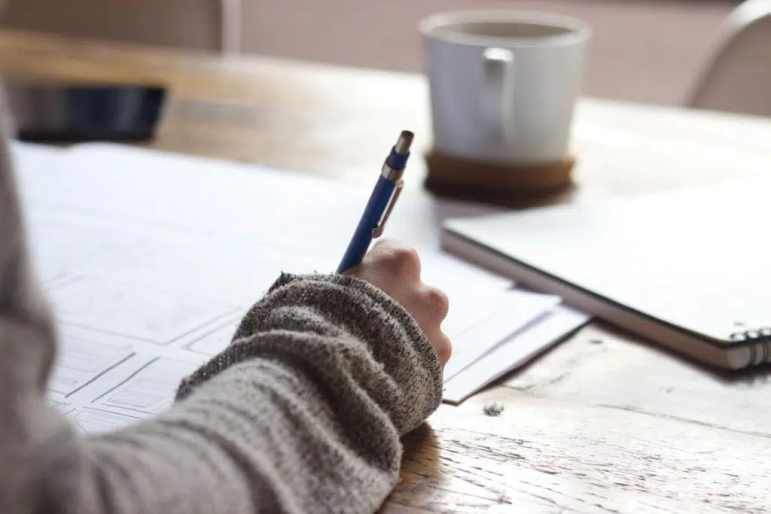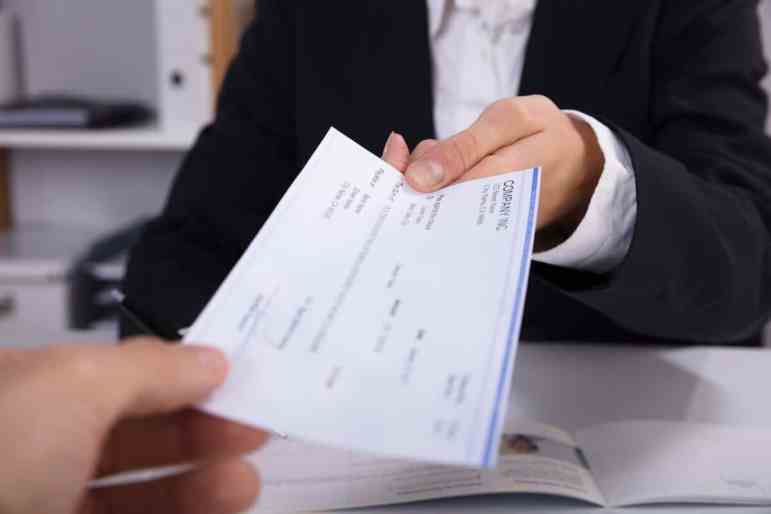How long is it for a check to be offset
If you have just placed a paper check, you would probably want to know when you can have the money.Wouldn’t it be ideal if this operation was instantaneous?The truth is that the time it takes for a check to be the subject of compensation can vary.
Let’s take a look at some of the reasons that this operation may require more or less time as well as the time you can expect and if there are measures that you can take to speed up the operation.
Compensation for a check is the process by which your bank (the beneficiary’s bank) receives money from the issuer’s bank and confirms that there are enough funds on the issuer’s current account to carry outthe transaction.
Since personal checks are essentially only a promise to pay you, there is no guarantee that money will really be available on the issuer’s account.This is why banks take the time to check everything.
In other words, when you put checks in your bank account, your financial institution must work behind the scenes.
According to the check, you may be required to wait more than a working day before you can collect the money on your bank account or withdraw from an automatic window.
It is less time than before: formerly, banks had to physically send each check to the issuing bank or a central compensation chamber.
Modern banking systems have considerably accelerated the process and banks no longer have to send paper checks together.From now on, the majority of the check compensation process takes place electronically.
New systems such as mobile check deposits can reduce restraint time even more, since you don’t have to wait for the next working day to launch the process.
However, as a rule, you can expect a check to take around two working days to be offset, and a little longer in some cases.
You must always wait until the check is cashed before spending the money, since you will be required to reimburse the money if it turns out that it is a dismissal check.
Sometimes when you drop a check, you can see part of the money appear on the balance of your account earlier than expected.It depends on the policy of availability of your bank funds, so the amount may vary from one bank to another.
In the United States, federal law obliges banks to unlock the first $ 225 of the check for check the following working day.Does this mean that part of the check has already been cashed and that you are free to spend it?Not necessarily.
If there is not enough funds on the issuer’s account, you will always be required to reimburse it, then only spend the money if you know where it comes from.
If it is a check for your employer, you are probably safe, but if it comes from someone you don’t know very well, it would probably be wise to wait until the next day.
The rest of the deposit should be available on the second working day, unless the bank has a good reason to keep it longer.
Two working days is a fairly correct estimate if you are wondering how long it takes to collect a check.But the exact duration will depend on the type of check, the amount of the check and the duration during which you hold an account within your financial institution.
Here are some reasons why you may have to wait any longer for a check: compensated:
- You have a new account: If you have recently opened your check or savings account, your bank can block by default all the checks you place.Once your first check is successfully compensated, your bank can then increase your deposit limit.
- Your account is uncovered: If you have a history of overdraft or deposit deposits without provision as an account holder, compensation for a check may require more time.
- The check relates to a large sum of money: According to CC (rules that American banks must follow when processing checks), banks can retain checks over 5,525 USD longer than checks lower than this amount.
- The check comes from an unknown transmitter or an international bank: If this is the first time that you have dropped a check for a particular transmitter or if the check comes from a bank account abroad, the verification of funds by your bank may require more time.
Once you have put a check, you can’t do much to speed up the process.You just need to be patient and wait for him to be offset.
But if you have not yet submitted it, you can take some measures to reduce your risk -related risk and speed up treatment time:
- Place it in person: If you go to your bank or Caisse Populaire to deposit a check in person, your bank is likely to treat it faster than if you place it through an automatic counter.
- Check the calendar of your bank: Make sure to check the schedule for your bank’s holidays and any other schedule or schedule.Place the check before the limit time indicated so as not to waste time with the collection of your check.
- Request a bank check: Personal checks can take more time compared to a bank check, a certified check or a mandate, since personal checks are more likely to be without provision.Your bank can impose a reservoir on bank checks if it is a large sum of money, but you are less likely to find yourself in a situation where the check is rejected knowing that it is guaranteedby the equity of the issuing bank.
- Contact your bank directly: If you have had an account in the same bank for some time and you have good personal financial history without discovered, inform your bank in advance that you will drop a large check.They may be able to collect your check faster if you receive regular checks from the same transmitter each month.
Check payments are down and are gradually suppressed in certain countries.But they are always used for certain types of transactions, such as payment of rent.
When you drop a check, your bank must compensate for the check before the funds are available in your account.Paper checks can take up to two working days to be offset, and even more if it is a large sum of money or if there are other factors that come into play.
Although you cannot do much to speed up the process, there are alternatives to paper checks that you can use to transfer money more effectively.
If you can, ask the people with whom you are dealing to use another payment method, such as a direct deposit or a transfer of money.
If you are working in the United States, your employer may be able to pay you with an ACH transfer instead of sending you a paper check.
In many countries, you can use an online payment service to transfer money with friends, such as Veno in the United States and Pix payments in Brazil.
If you need to send money internationally, you can use a service like Remitly, which offers effective money transfers worldwide.
- How to write a check: a step by step guide
- How to put on a check
- What is the difference between a current account and a savings account?
Remitly is responsible for making international money transfers faster, easier, more transparent and more affordable.Since 2011, millions of people have used Remitly to send money in peace.
Visit the home page to download our application or consult our help center to start taking advantage of it.



